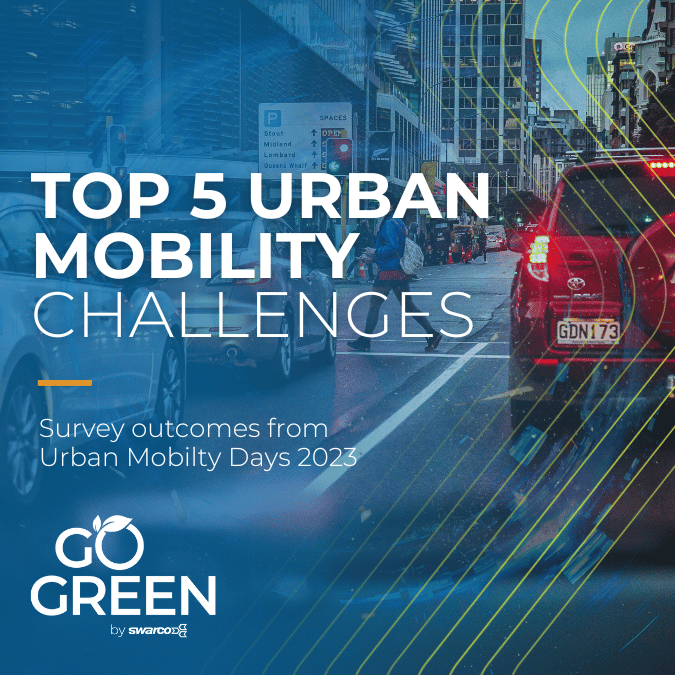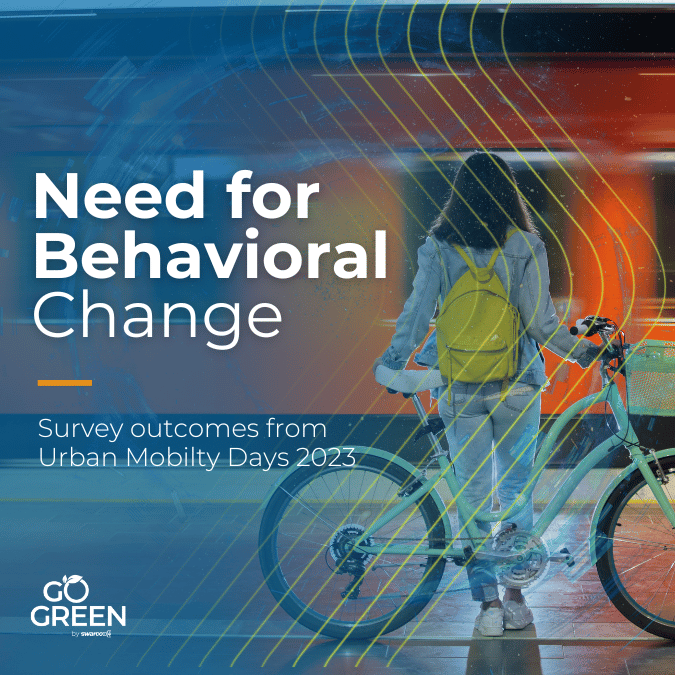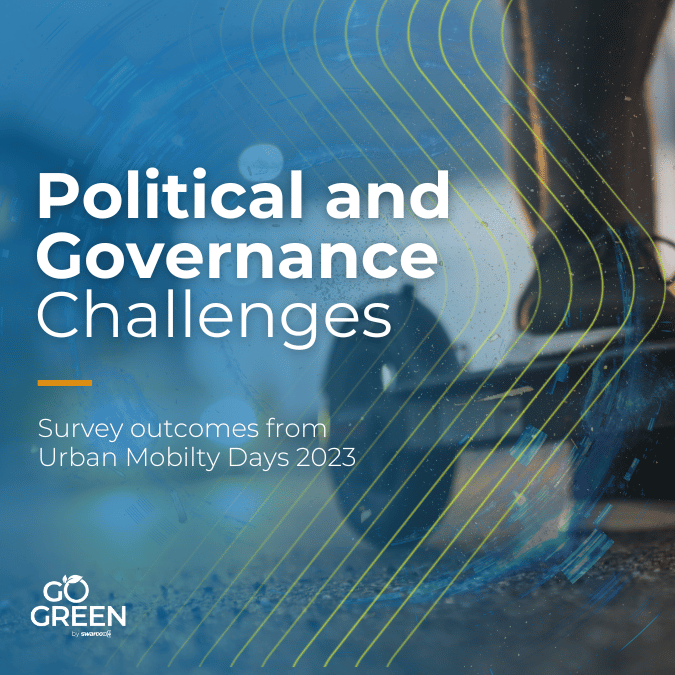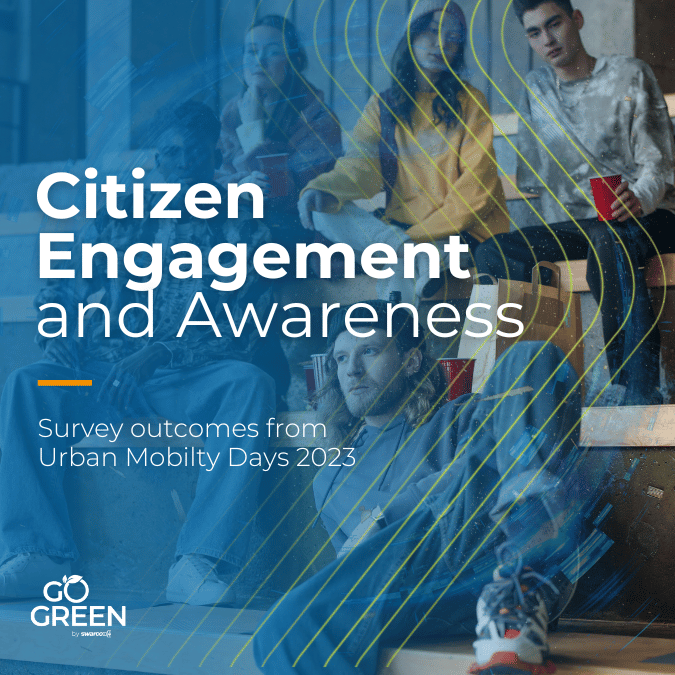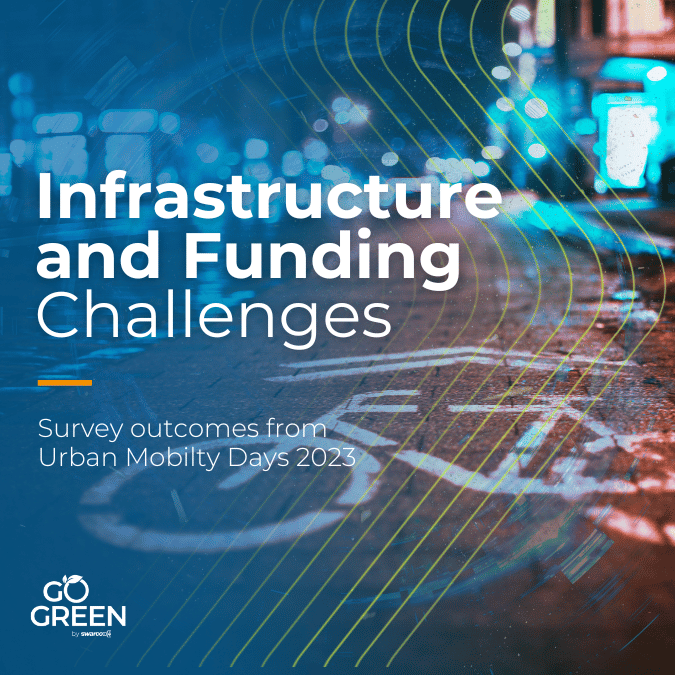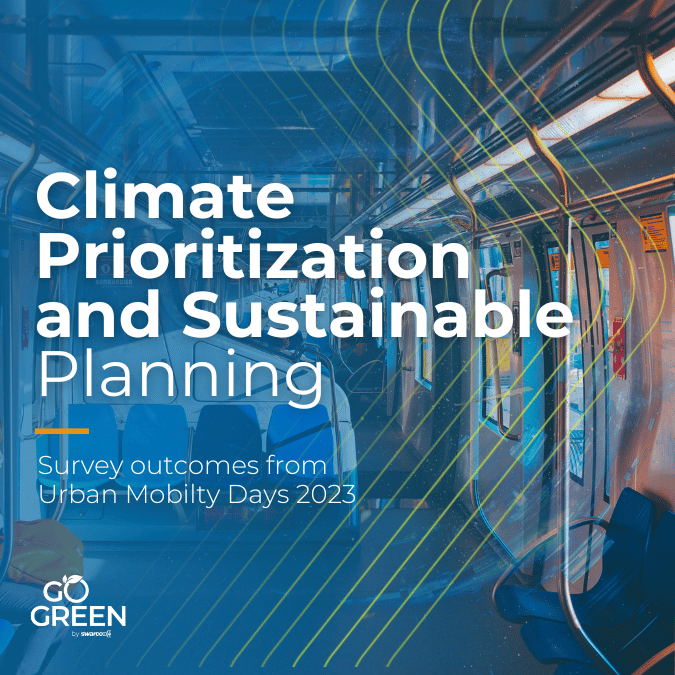Exploring the Future Opportunities in Urban Mobility:
Highlights from Urban Mobility Days 2023 in Sevilla
The Urban Mobility Days 2023 event has recently come to an end, leaving behind a trail of exciting ideas and opportunities in the realm of urban transportation. At the heart of our exhibition presence was the presentation of our GoGreen initiative, an initiative that promises to reshape how we think about mobility in cities. In this article, we'll take a closer look at some of the highlights of the event.
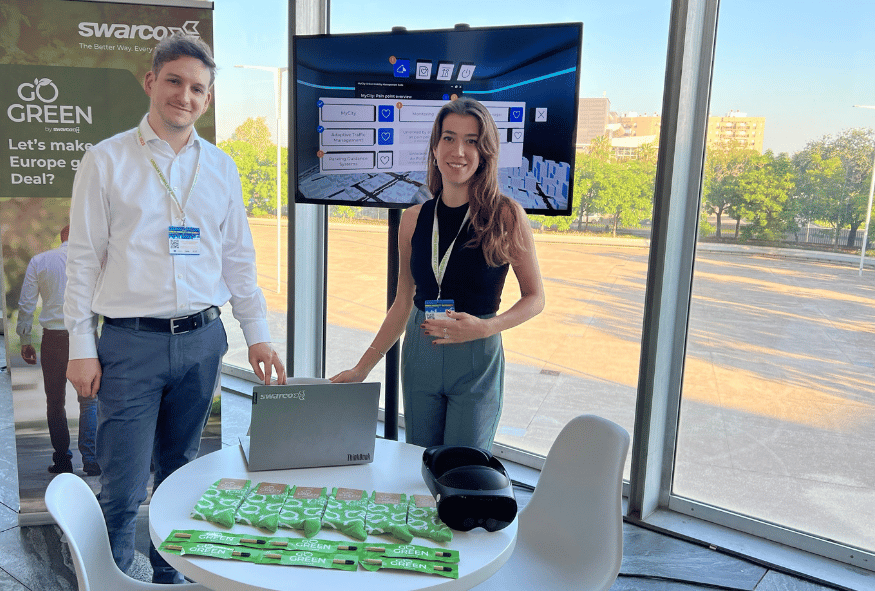
VR demos and networking
One of the standout features at the event was the showcasing of over 70 VR-demos, addressing the different pain points of day-to-day traffic. This immersive experience takes attendees on a journey through SWARCO’s Meta City, presenting innovative solutions and transportation systems which can significantly facilitate the attainability of their climate goals. Public authorities, universities, young professionals, and representatives from numerous ministries and cities (from Madeira, Lisbon, Sevilla, over Amsterdam, Ricany to Gdynia and Cyprus) were captivated by the existing potential to tackle climate challenges.
Understanding is the key to common success!
Sustainability and the quest for achieving climate neutrality are at the forefront of today's urban mobility challenges, and understanding these is only possible by entering into dialogue. The event provided the perfect opportunity to gain insights and perspectives by listening attentively, and as numerous as the cities visiting the exhibition were, so are the number of different challenges they have to deal with. Nevertheless there were a lot of similarities, especially when it comes to identifying the most common ones.
Survey outcomes from Urban Mobility Days 2023 in Sevilla, Spain:
- Need for behavioral change and public awareness: Across many cities, there is a recognized necessity for a shift in public behavior and increased awareness regarding sustainable modes of transport. Encouraging a change in mindset and promoting alternative transportation methods, such as active modes (walking, cycling) and public transport, is a shared goal.
- Political and governance challenges: Political structures and governance issues are identified as unpleasant obstacles in addressing climate issues and implementing effective transportation strategies. As politics has to take various different groups of interest into account during the decision-making, prioritization of focus areas is in important, but also difficult and time consuming process between different levels of government or between public and private entities.
- Citizen engagement and awareness: There's a recurring theme of the need for increased citizen engagement and awareness. Public involvement in decision-making processes and raising awareness about the benefits and necessity of sustainable transport options are seen as crucial factors in achieving meaningful change.
- Infrastructure and funding challenges: Challenges related to outdated infrastructure, insufficient funding, and the need for significant investments in transportation infrastructure, particularly in public transport and sustainable mobility solutions, are prevalent.
- Climate Prioritization and Sustainable Planning: Despite recognition of climate challenges, there are difficulties in prioritizing climate-related issues and implementing sustainable urban mobility plans comprehensively.
You have the will, we have the technology and the know-how. So what are we waiting for?
The exchange of experiences and inspiring ideas during this event laid the foundation for potential collaborations and partnerships that could drive urban mobility solutions forward to achieving Europe’s common objective – to make the continent climate neutral.
If we can take the collaboration of politics, industry and public authorities to the next level, the awareness about the potential of Intelligent Transportation Systems will grow and we will push the boundaries of innovation in the quest for a more sustainable and efficient mobility landscape.
